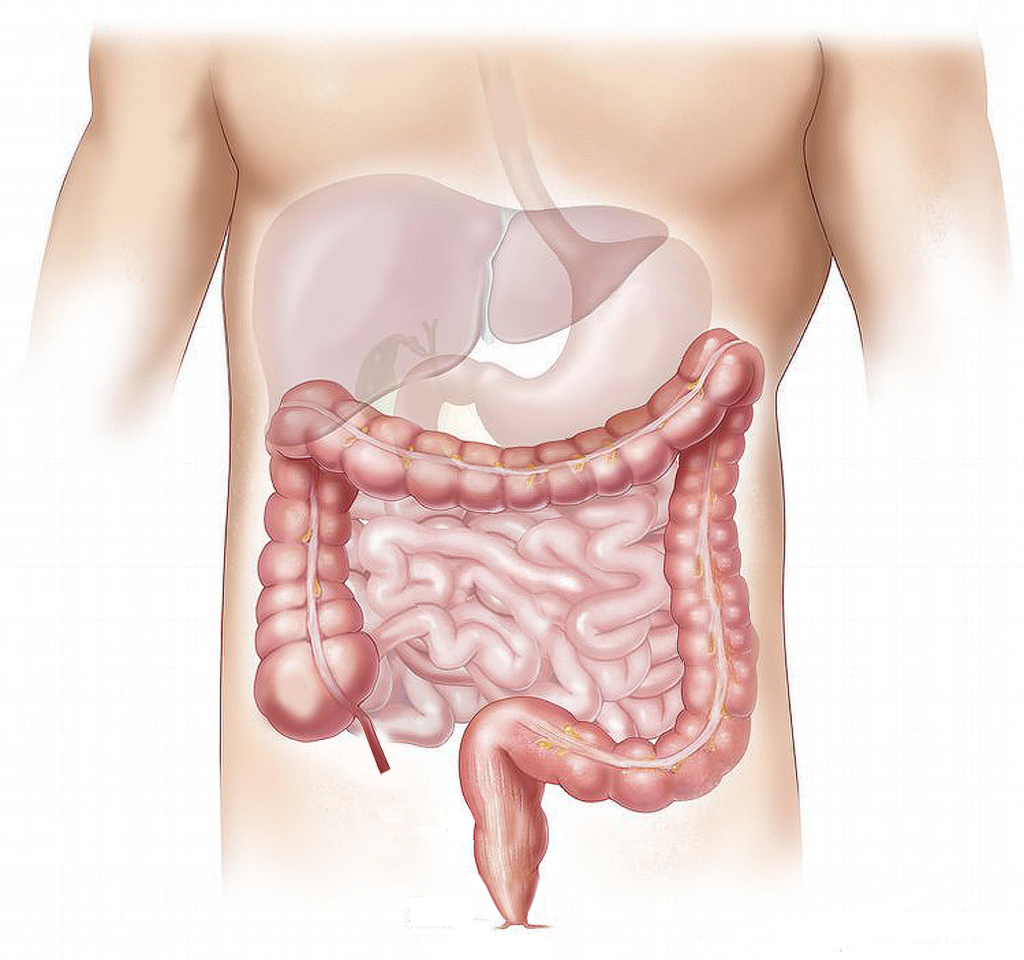Inflammatory bowel disease pertains to a set of conditions, such as Crohn’s disease and ulcerative colitis, which involve chronic inflammation of the digestive tract.
The latest research is revealing this inflammation is from the body itself, attacking a harmless bacteria, virus, or food in the gut. Which can end up causing injury to the bowel.
Crohn’s disease typically affects the colon and/or the last part of the small intestine, but can affect any part of the intestinal tract, from the rectum to the mouth.
Ulcerative colitis involves the large intestine or colon.
Those with Inflammatory bowel disease, typically experience flare-ups with severe symptoms, alternated with symptom free or periods of mild-symptoms.
Inflammatory bowel disease has many similar symptoms of other gastrointestinal conditions, such as irritable bowel syndrome and food intolerances. Which is why it is so important to have a specialist properly diagnose you.
Inflammatory bowel disease symptoms include:
 Abdominal pain and cramps
Abdominal pain and cramps
Loss of appetite and/or weight loss
Iron deficiency anemia from loss of blood
Urgent need to have a bowel movement
Diarrhea and/or bloody stools
Fatigue
Fever
Many people with inflammatory bowel disease also develop other conditions. These conditions that coexist include, bone loss, kidney and liver disorders, inflammation of the eye, and skin conditions
How Crohn’s Disease affects the body
Crohn’s disease usually causes thickness of the bowel wall, it can also damage and cause inflation in different areas in the digestive tract, while other parts are left unaffected. The lower part of the small intestine is most commonly affected.
Sometimes the bowel wall can be penetrated with Crohn’s disease. This can cause ‘fistulas’ or abnormal connections between infected fluid collections or organs
Symptoms of Crohn’s disease
Fatigue and/or fever
Lack of appetite
Persistent diarrhea
Rectal bleeding
Constipation
Feeling of bowel movements that are incomplete
Urgent need to have a bowel movement
Abdominal pain and cramping
Unintentional weight loss
Night sweats
Nausea
Those with Crohn’s disease can also have conditions that affect other parts of their body. This can be gallstones, arthritis, kidney stones, skin rashes, inflammation of the mouth or eyes, liver disease, and ulcers.
Treatments
There are many new treatments and medications for inflammatory bowel disease, Crohn’s disease and ulcerative colitis. It is important to get accurately diagnosed by a board certified gastroenterologist
The goal of Gastroenterologist Consultants of Central Florida is to improve your quality of life by effectively manage your inflammatory bowel condition.
Treatment for inflammatory bowel disease, ulcerative colitis, and Crohn’s disease, is highly individualized. Not one treatment works for everyone.
